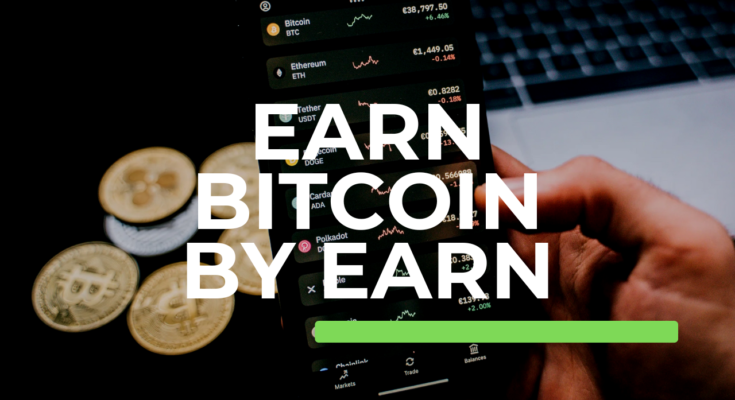In recent years, the phenomenon of cryptocurrency mining has burgeoned at a remarkable pace, with Bitcoin reigning as the pivotal force behind this movement. A decentralized digital currency, Bitcoin functions independently of conventional banking systems by leveraging a peer-to-peer network and sophisticated blockchain technology. Although the primary principle of Bitcoin mining—validating transactions and receiving rewards in the form of Bitcoin—may seem straightforward, the tools and methodologies for mining have undergone substantial transformation. Now, mobile applications are available, allowing individuals to participate in Bitcoin mining or related earning mechanisms directly from their smartphones. This article delves into the realm of Bitcoin mining apps, exploring their functionality, the underlying technology, user instructions, and an evaluation of their benefits and drawbacks.
Decoding Bitcoin Mining
Bitcoin mining encompasses the verification of transactions within the Bitcoin network, an endeavor that contributes to the public ledger known as the blockchain. This process requires miners to tackle intricate mathematical puzzles, which typically demand high-powered computers. As compensation for their efforts, miners are awarded newly minted bitcoins. Designed to be computationally demanding, mining maintains security across the network and curbs malicious attempts.
The primary objectives of mining include:
- Securing the network: Miners authenticate transactions, ensuring each is legitimate.
- Generating new bitcoins: Mining introduces fresh bitcoins into circulation as a reward to miners.
- Maintaining decentralization: The global dispersion of miners keeps Bitcoin independent of centralized authorities.
Initially, mining was conducted using standard CPUs, which later evolved to GPUs and Application-Specific Integrated Circuits (ASICs) as mining complexity increased. However, the advent of mobile technology has paved the way for applications that claim to mine or generate Bitcoin-related earnings via smartphones.
Grasping the Concept of Bitcoin Mining Apps
Bitcoin mining apps are designed to enable users to engage with cryptocurrency mining or related earnings through mobile devices. However, due to the constrained power and efficiency of smartphones, these apps typically operate differently from traditional mining setups.
Operational Mechanisms of Bitcoin Mining Apps
The majority of Bitcoin mining apps do not execute mining directly on the device. Rather, they fall into one of the following categories:
- Cloud Mining Apps: Serving as conduits to cloud mining services, these apps allow users to lease computational power from remote data centers, generating returns based on the hash power they rent.
- Reward-based Apps: These apps dispense small amounts of Bitcoin or other cryptocurrencies as rewards for completing simple tasks like watching advertisements, participating in surveys, or playing games.
- Simulation Apps: Such apps offer a mining experience without actual computational processes, often rewarding users with Bitcoin tokens in a simulated environment.
- Referral Programs: Many mining apps incentivize users to invite others to join, providing rewards for each new participant and encouraging network expansion.
Notable Bitcoin Mining Applications
Among popular Bitcoin mining apps are:
- CryptoTab Browser: A web browser with an embedded mining algorithm that claims to generate Bitcoin while users browse.
- Pi Network: A social cryptocurrency that allows users to “mine” Pi tokens on their smartphones simply by keeping the app active.
- StormGain: A cloud mining application enabling users to rent hash power and accrue Bitcoin without needing to invest in equipment.
- NiceHash: A marketplace where users can buy and sell hashing power, either by renting their equipment’s capacity or purchasing cloud mining contracts.
- RollerCoin: A gamified platform that enables users to earn rewards by participating in in-app games and simulations.
Initiation Guide: Using a Bitcoin Mining App
For those intrigued by Bitcoin mining apps, follow these steps to begin:
- Download and Install: Head to the official app store (Google Play, Apple App Store) and select a reputable app for installation.
- Create an Account: Registration typically requires an email and password.
- Select a Mining Plan or Task: Opt for a cloud mining plan, task, or game that aligns with your interests. Many apps also offer trial versions.
- Start Mining: Commence the mining session, following any on-screen instructions.
- Collect Rewards: As mining or tasks progress, rewards accumulate and can often be transferred to a digital wallet or exchanged for other cryptocurrencies.
Profit Strategies of Bitcoin Mining Apps
Bitcoin mining apps employ various strategies to generate revenue:
- Cloud Mining Contracts: Many apps charge fees for cloud mining contracts, taking a percentage of users’ earnings as their revenue share.
- Advertisement Revenue: Reward-based mining apps generate revenue through advertisements, which is then shared between the developers and users.
- Transaction Fees: Withdrawal transactions often incur fees, adding to the app’s revenue.
- Referral Programs: Through user referrals, the app’s user base grows, leading to additional income from new sign-ups.
Advantages of Utilizing Bitcoin Mining Apps
Bitcoin mining apps offer a number of benefits, particularly for casual users curious about cryptocurrency:
- Simplicity: Apps present an uncomplicated way for beginners to earn small amounts of Bitcoin without significant investment.
- Minimal Start-up Costs: Many mining apps require no upfront fees, making it accessible to participate.
- Accessibility: Mining apps are accessible to anyone with a smartphone and internet connection.
- No Hardware Management: Since most apps operate through cloud mining or simulations, users avoid the need for mining hardware.
Challenges and Constraints
Despite the convenience of mining apps, there are key limitations:
- Restricted Earnings: Mobile mining yields much lower returns than conventional mining with ASICs, with limited profitability.
- Device Wear and Tear: Running mining apps may reduce battery life and potentially wear down devices.
- High Fees: Withdrawal and cloud mining fees can impact overall profitability.
- Security Risks and Scams: Not all mining apps are trustworthy, with some potentially designed to exploit personal data or funds.
- Regulatory and Tax Implications: Certain regions impose regulations on cryptocurrency earnings, and users may need to declare income for tax purposes.
Avoiding Scams: Tips for Choosing a Legitimate Bitcoin Mining App
Given the frequency of scams within the crypto sector, caution is essential when selecting a mining app. Consider these tips to identify reputable apps:
- Review App Ratings: Check the app’s ratings and reviews on the app store; apps with consistently low reviews or user complaints should be avoided.
- Verify Developer Information: Favor apps from credible developers with established backgrounds in cryptocurrency or technology.
- Examine the App’s Website: Validate the developer’s website and assess transparency around team members, partnerships, and contact details.
- Beware of Unrealistic Promises: Apps promising high returns or large profits with minimal effort often lack credibility.
- Review Withdrawal Terms: Some apps impose substantial withdrawal minimums, complicating access to earnings; verify these conditions before committing time or funds.
Security and Privacy Considerations
Security is paramount when engaging with cryptocurrency-related applications. Protect your information and assets by:
- Using Robust Passwords: Craft strong, unique passwords to prevent unauthorized access.
- Enabling Two-Factor Authentication (2FA): Many trustworthy apps support 2FA, providing an added security layer.
- Avoiding Public Wi-Fi: Only access the app on secure networks to reduce the risk of hacking.
- Being Wary of Phishing Attacks: Avoid clicking on unsolicited links, and ensure that websites are legitimate before submitting sensitive information.
Final Thoughts
Bitcoin mining apps offer a distinctive and accessible approach for newcomers to explore Bitcoin mining and earn nominal rewards without purchasing specialized equipment. Nevertheless, users should thoroughly evaluate each app’s legitimacy, as scams and low-profit potential are prevalent. While these apps are unlikely to yield substantial financial gains, they serve as a valuable entry point to the cryptocurrency world and offer insight into the mining process.
Staying informed, exercising caution, and adopting a balanced perspective are advisable when engaging with Bitcoin mining apps, as technology and the cryptocurrency landscape continue to evolve.



